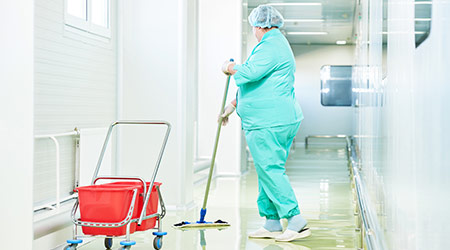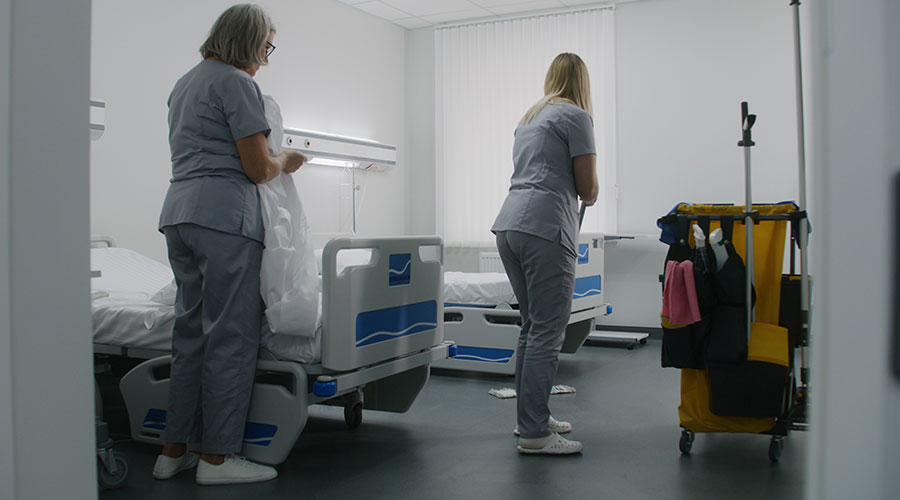
Disinfectants may be helping create superbugs
Research has led to calls for the products - Chlorhexidine and Mupirocin - to be more strictly regulated
Doctors have called for common hospital disinfectants to be regulated like antibiotics after studies suggest that the chemicals are helping create resistant superbugs, according to an article on The Herald website.
The researchers at Scotland's University of Aberdeen say that as many as 10 to 15 patients a month — in an average intensive care ward — are contracting infections linked to the overuse of disinfectants.
This has led to calls for the products - Chlorhexidine and Mupirocin - to be more strictly regulated.
The results suggest that healthcare facilities need to change the way they think about using disinfectants, particularly in the hospital setting. The research showed that in environments with a high concentration of disinfectant, previously harmless staphylococcus epidermidis bacteria can develop resistance to treatments commonly used to treat infection.
Despite the concerns over the use of the disinfectants, the researchers stops short of calling for hospitals to ban them.
March 25, 2019
Recent Posts
 Disinfectant Dispensers in Healthcare Facilities Often Fail to Deliver Safe Concentrations: Study
Disinfectant Dispensers in Healthcare Facilities Often Fail to Deliver Safe Concentrations: Study
Study of 10 hospitals finds 90 percent have at least one dispenser delivering disinfectants at incorrect concentrations.
 Duke University Health System Receives $50 Million for Proton Beam Therapy Center
Duke University Health System Receives $50 Million for Proton Beam Therapy Center
The donation is the largest philanthropic gift received by Duke University Health System.
 Protecting Patient Data: Strategies and Tactics
Protecting Patient Data: Strategies and Tactics
As cyber threats and breaches grow, healthcare organizations and facilities need a better approach to cybersecurity.
 Duke Health to Acquire Lake Norman Regional Medical Center
Duke Health to Acquire Lake Norman Regional Medical Center
The closing is projected for the first quarter of 2025.
 UT Southwestern Experiences Data Breach Through Calendar Tool
UT Southwestern Experiences Data Breach Through Calendar Tool